Abstract
The problem-solving strategies of family physicians have evolved in response to six features of family practice: the pattern of illness; the undifferentiated and unorganized nature of conditions seen; the early stage at which illness is seen; the family physician's unconditional commitment to patients; his continuing relationship with his patients, and the time pressure under which he works. The effect of these influences is described in terms of the model of the diagnostic process formulated by Elstein et al.2
Full text
PDF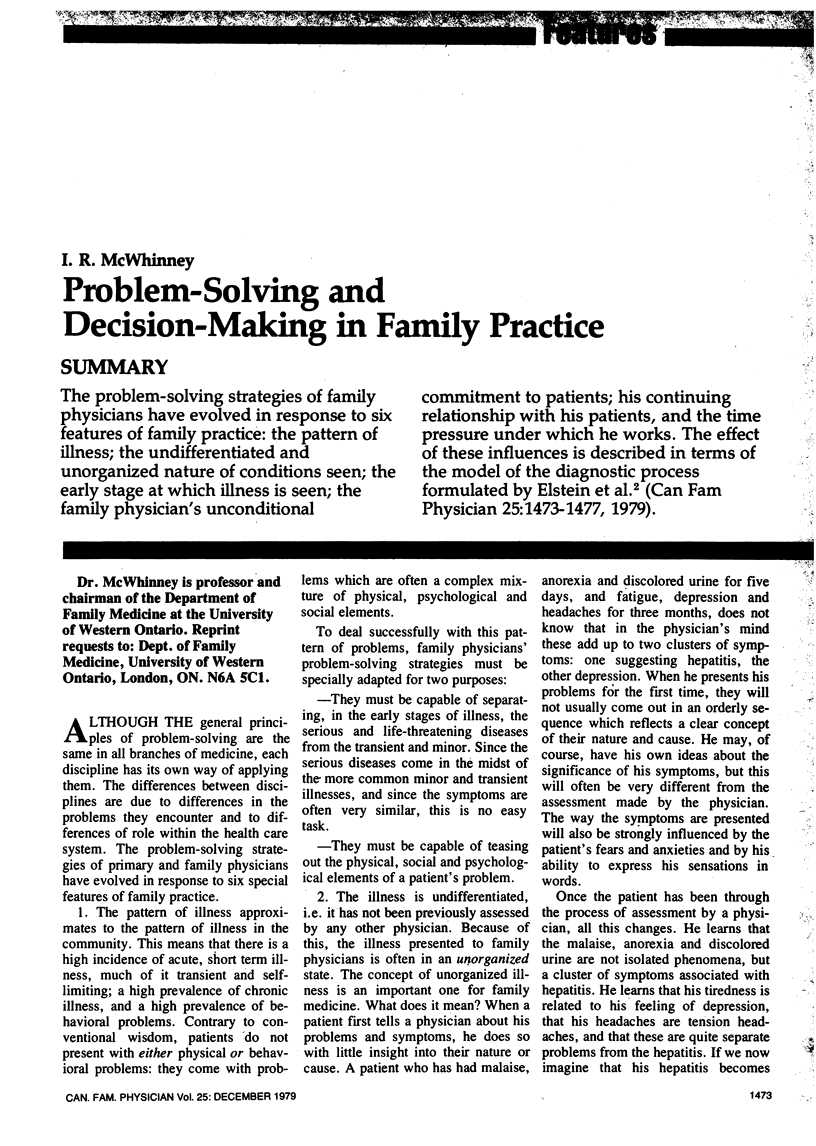
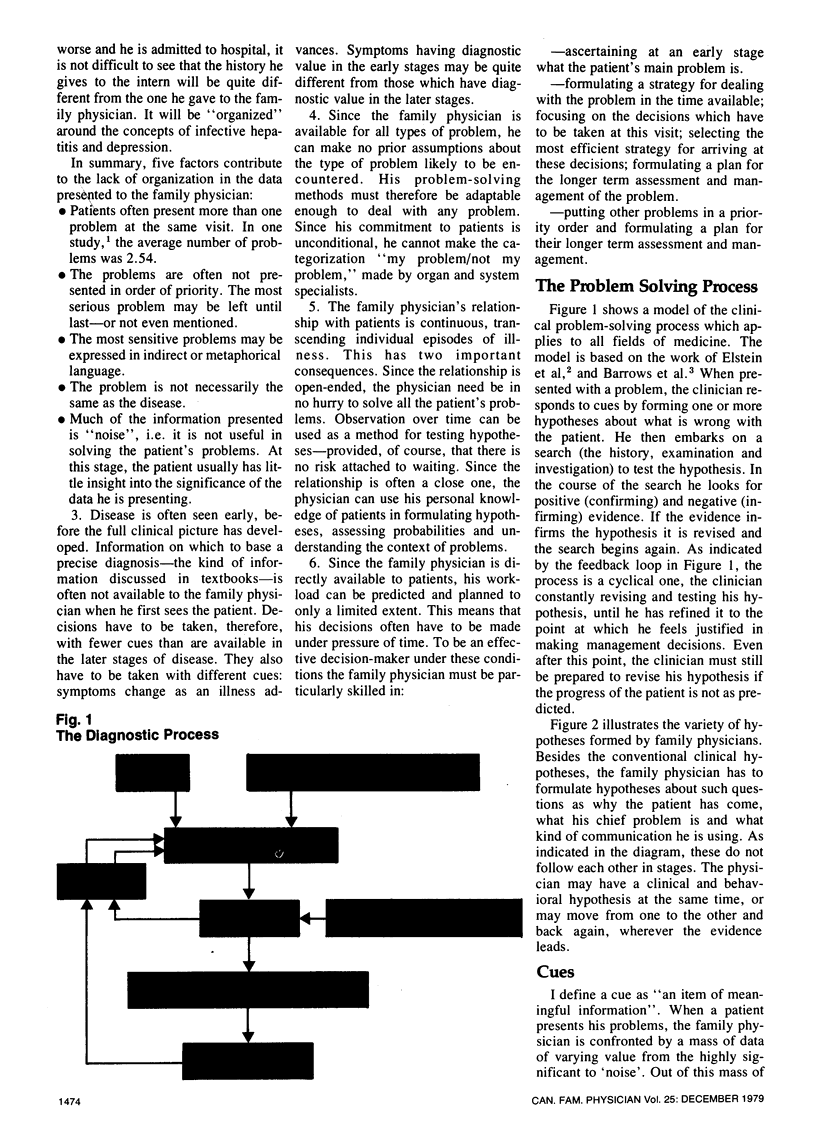
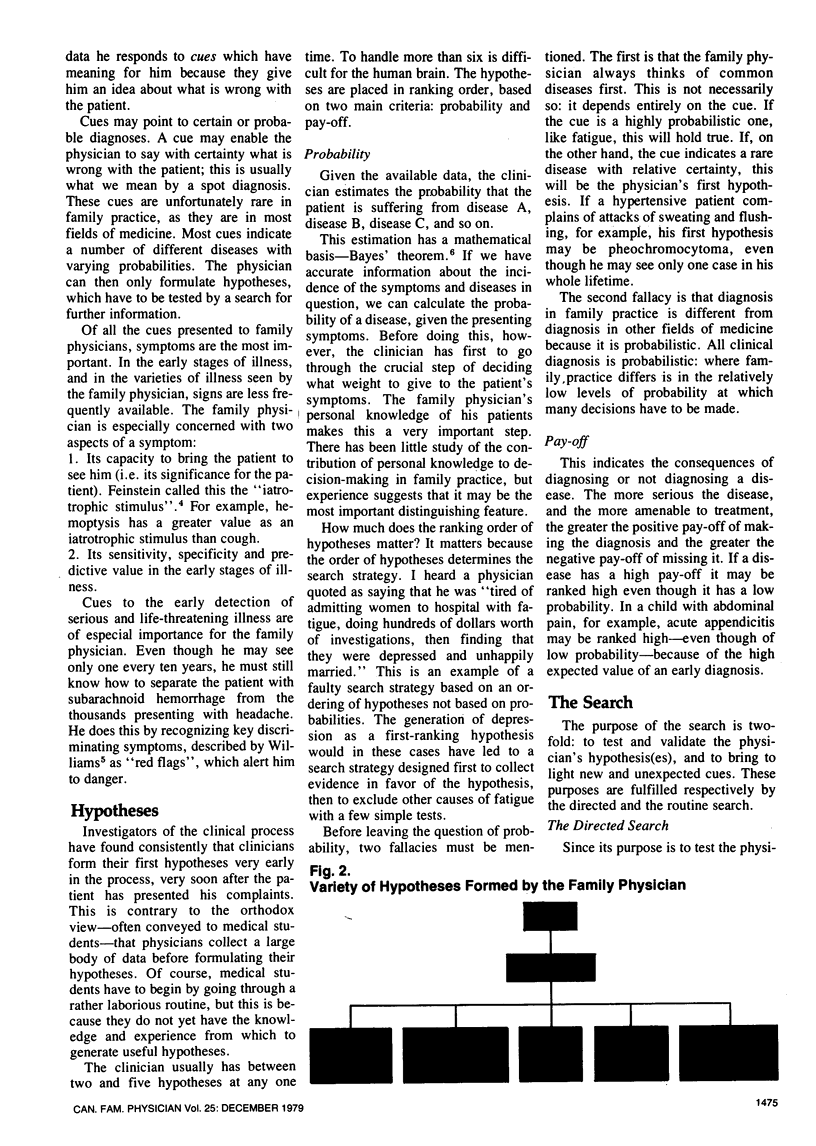
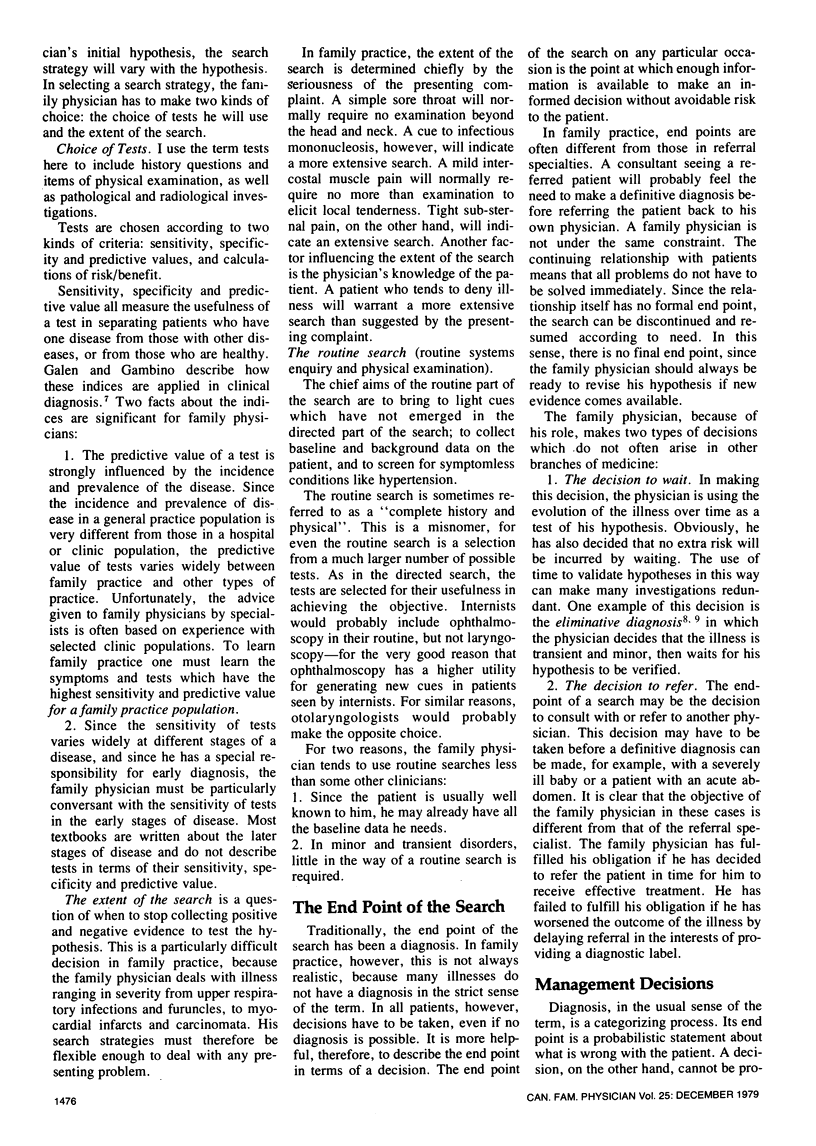
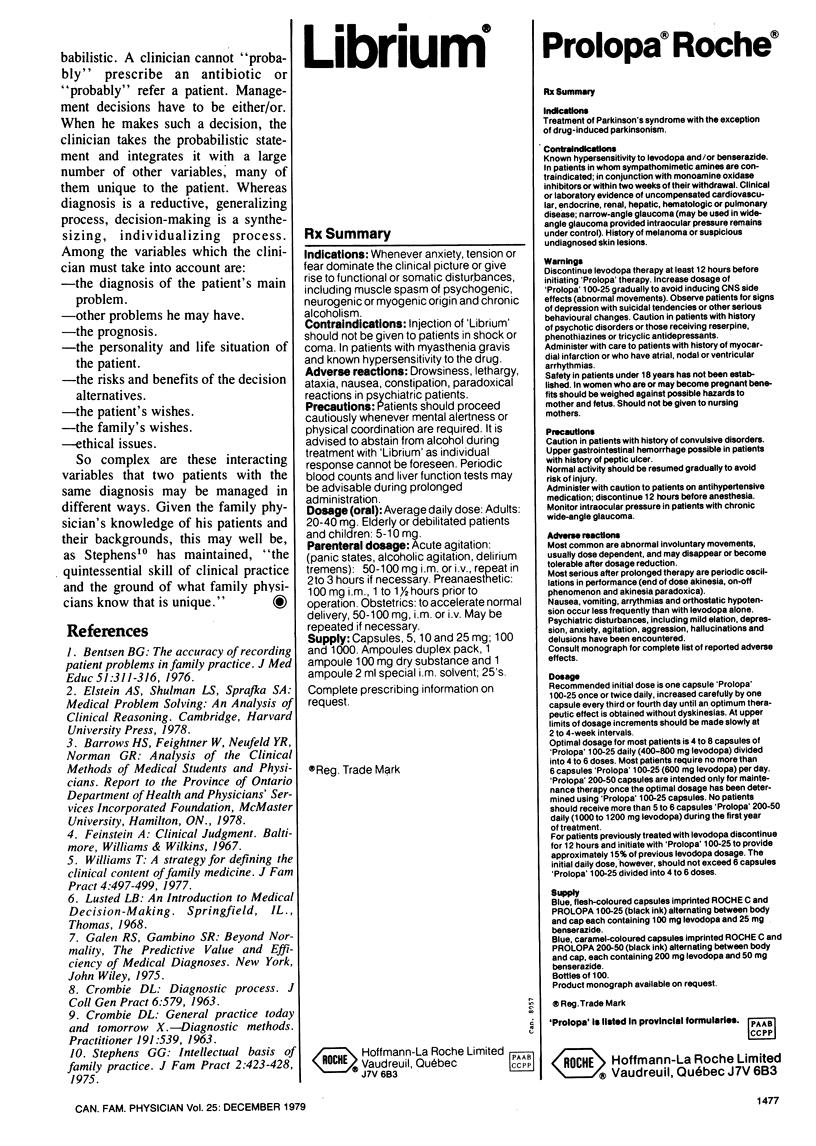
Selected References
These references are in PubMed. This may not be the complete list of references from this article.
- Bentsen B. G. The accuracy of recording patient problems in family practice. J Med Educ. 1976 Apr;51(4):311–316. doi: 10.1097/00001888-197604000-00006. [DOI] [PubMed] [Google Scholar]
- CROMBIE D. L. DIAGNOSTIC PROCESS. J Coll Gen Pract. 1963 Nov;6:579–589. [PMC free article] [PubMed] [Google Scholar]
- CROMBIE D. L. GENERAL PRACTICE TODAY AND TOMORROW. X. DIAGNOSTIC METHODS. Practitioner. 1963 Oct;191:539–545. [PubMed] [Google Scholar]
- Stephens G. G. The intellectual basis of family practice. J Fam Pract. 1975 Dec;2(6):423–428. [PubMed] [Google Scholar]
- Williams T. Strategy for defining the clinical content of family medicine. J Fam Pract. 1977 Mar;4(3):497–499. [PubMed] [Google Scholar]


